Ohio Farm Bureau introduces Energy and Utility Issues Resource Guide
Ohio Farm Bureau’s newest resource for members seeks to help farmland owners navigate the many questions surrounding energy development.
Read MoreIn a few short months, Ohioans will head to the polls to elect a new Governor, Auditor, Treasurer, Secretary of State and Attorney General. We’ll also elect a U.S. Senator, Supreme Court Justices and numerous state lawmakers. Between now and election day, Town Hall Ohio plans to host the candidates for statewide office. Today, our guests are seeking your vote to be State Auditor: Republican Keith Faber and Democrat Zack Space.
Read a transcription of the interview.
Host Joe Cornely: Today is our first in a series of shows in which we introduce you to the candidates for statewide office in this coming November’s election. Here’s how we did things. All of the major candidates were invited and when they accepted, they were provided a list of questions and notes on the time allotment for their answers. The questions and times of course are the same for both. The candidates came to our studio in separate recording sessions so we recorded their comments and then what you’re going to hear is my editing of those sections together. Editing was only for time and it did not affect the content. Now who gets to go first was determined by a coin flip and then I’ll rotate who starts with each question. So up first today auditor candidate Zack Space.
Joe Cornely: Government is influential in the many aspects of everybody’s lives. Talk for a couple of minutes if you would, Mr. Space, on what’s the proper role of government for John and Jane Q citizen.
Zack Space: So you know in this day and age we see that unfortunately I think our government has been influenced by extremes in both parties. The art of moderation has been lost and I think we see that loss manifested in government itself. There’s a role for government sometimes. Government has to get out of the way, but government also has to protect and ensure the safety and fairness of our society. So I see government as being a tool. It should be considered a partner with business and citizens. But all too often it’s seen as an adversary and one of the things again that I’m hoping that we can help change in this new role that I’m seeking, is to again rein still faith and confidence in government and restore balance to the equation and regrettably we have again seen this reverberation back and forth between the extremes and that’s not good for business and certainly not good for the average citizen.
Joe Cornely: Let’s talk with our listeners if you would Mr. Faber about the role of government in their lives. What is that proper role?
Keith Faber: I’m a free market conservative. I’m proud of what we’ve done in the state legislature with the commonsense initiative that I drafted to reduce government regulations by nearly 50 percent. We all need clean air, clean water and healthy safe work environments, but I’ve always said do we really need an administrative code in Ohio that is seven feet tall to get there? You need to have clear delineated rules and things that encourage compliance to get people there. And so that’s really the role of government. What we do in the state legislature is try to make government work for Ohio. Some things we’ve done have helped and some things candidly didn’t work out like we’d hoped and one of the nice things about it I always remind people it’s the Revised Code. You need to be going back in and making sure it worked for Ohioans. And so from that perspective, you know, people in Ohio are good people. They’re going to do the right thing if you give them an opportunity. And from that perspective I want to make sure that we have clear rules that those rules are enforced consistently and that we have check and balance. I’m running to be state auditor because I know we can make state government work better and my entire time in the legislature we’ve been doing that. Whether it’s doing tax reform whether it’s doing the commonsense initiative that I mentioned, whether it’s asking for higher education to reduce the cost degree for students. We’ve shown that free market conservative principles applied to government correctly will make government work better for Ohioans.
Joe Cornely: What are the top three challenges that are facing all Ohioans and how you plan to address those challenges?
Keith Faber: Well I think first we need to recognize that the No. 1 issue in Ohio is always jobs and the economy. If you can provide an opportunity for families to earn more and keep more of their own money they’re going to have the opportunity to make and meet their God-given potential. And so from that perspective the other things we do in state government relate back to that and as state auditor the No. 1 thing I can do is try and get government to work better, faster, cheaper and more transparently. But in that regard, some things I can do on specific issues as state auditor, deal with the rising cost of college. I’m the first one in my family to have a higher education degree. I’m the youngest and if it weren’t for scholarships and working through undergrad and law school, I would not have been able to have a college opportunity. We need to make sure that’s affordable for all Ohioans and that’s why as senate president, we issued the Ohio Senate 5 percent challenge that reduced the cost of degrees in this state of public colleges and universities by an average of 11.7 percent. Now as auditor, we’re going to get to do performance audits of those colleges and universities to keep up and make sure they’re doing things as efficiently as possible. Medicaid is another one. Medicaid is the 800 pound gorilla that will literally consume all of the state resources. It’s literally pushing out money for education. It’s pushing out money for other things. The governor’s expansion is unsustainable. So we’re going to do Medicaid performance audits and look at things like the PBM, the pharmacy benefit managers. We’re going to look at, frankly the way they’re implementing their policies and find ways to save money. Look Medicaid is almost 50 percent a state spend. If I can just save 1 percent, 1 percent on the Medicaid budget it’s over a billion dollars. I think that’s very doable. During the term and we’re going to do things to make Medicaid be more efficient. And then finally, looking at those state agency performance audits that I’ve talked about before. By upping the number of state agency performance audits we’re going to be able to free up resources that can either go to local governments, can go back to taxpayers or frankly can help refocus priorities on things like the opioid epidemic. All of those things are important and they’re all things that are impacting Ohioans every single day. In my time as a state legislator, I’ve had the chance to get to know how state government works firsthand. I wasn’t off doing things in other places. The reality is I’ve been inside state government trying to figure out how to make it work better. Those skills are going to help us. Now, the reality is that we’re doing, Ohio’s doing better. Better but still not well enough. I’m proud of the fact that 520,000 new private sector jobs have been put in place during my tenure as state senate president. And I’m proud of the fact we’ve done regulatory reform that makes Ohio work better. That’s the tip of the iceberg. We can do more. We will do more. And part of that is going to use the tools that the auditor’s office gives us to get government work better.
Zack Space: So in the end, the state of Ohio is only as prosperous as its citizens are. And I think that incorporates the notion that you know everyone matters, everyone counts and everyone should be sharing to the extent that that’s possible in the success of our state. And we are living in a new world. Ohio’s ability to adapt to the global economy is crucial. I know in the agricultural community there’s a lot of angst we over the farm bill, angst over the tariffs, commodity pricing, tons of issues that are impacting farmers all around the state and our ability to adapt to these issues and incorporate new technologies, very very important. There are other areas as well. The manufacturing sector in Ohio has suffered significantly as a result of what I believe to be unfair trade laws. But we do see some very exciting developments in eastern Ohio in particular I mentioned I have done some work over there the natural gas and wet gas industry has created a confluence of events that could inspire a renaissance in the manufacturing realm really throughout the state. There’s a proposed ethane cracker in Belmont County that if built will produce abundant amounts of polyethylene which is a primary feedstock in almost anything that’s manufactured anymore and if you couple that with the fact that natural gas in eastern Ohio is cheaper than anywhere in the world right now, along with the fact that Ohio is situated within a day’s drive to two thirds of the country’s population, half of Canada’s, we’ve got great transportation resources and infrastructure with Interstate 77 of 70 crisscrossing over the Utica play the Ohio River. It makes for really a Holy Grail. And I think the challenge for Ohio is to capitalize on these exciting developments, whether they’re again, agriculture, manufacturing, technological and be ahead of the curve nationally. We’ve got a lot of promise in this state but realizing in terms of infrastructure development, workforce development and being smart about where we invest our resources is probably the biggest challenge we have.
Read a transcription of the complete interview with both candidates.
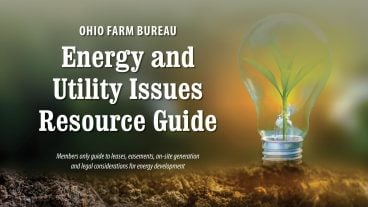
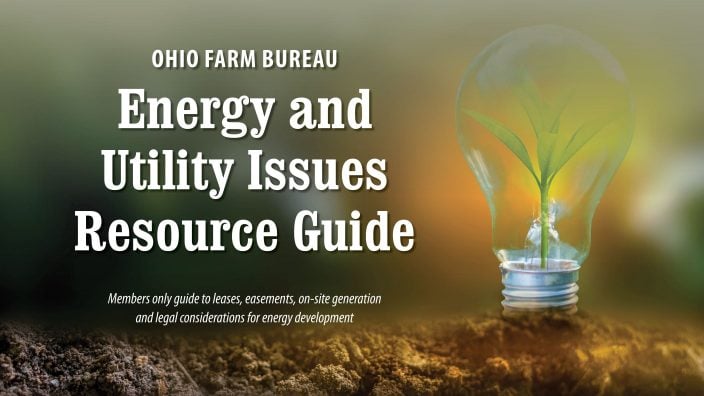
Ohio Farm Bureau’s newest resource for members seeks to help farmland owners navigate the many questions surrounding energy development.
Read More

Ohio Bureau of Workers’ Compensation offers five tips to help prevent slips, trips and falls—one of the top causes of workplace injuries.
Read More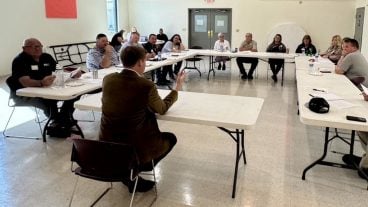
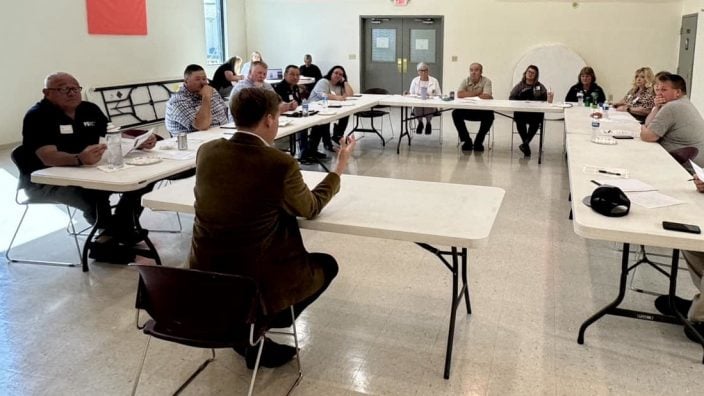
Through a grassroots process, county leaders identified 106 seats where a Friend of Agriculture could be named, with 104 of those seats ultimately being won by a Friend of Agriculture candidate.
Read More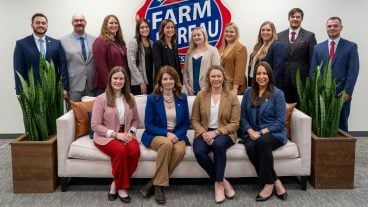
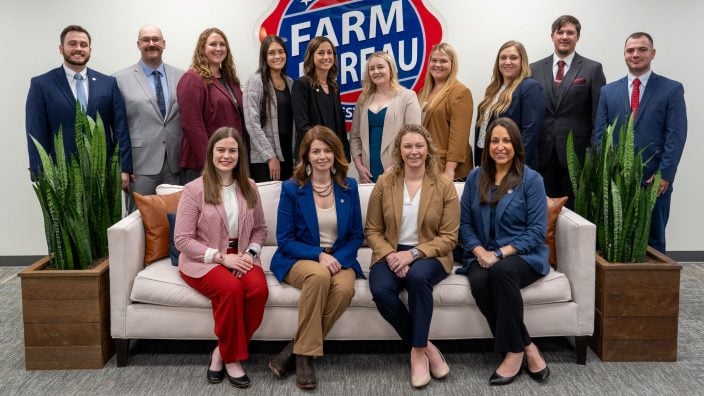
Ohio Farm Bureau’s 2024-2025 AgriPOWER Institute kicked off in October with 14 farmers and agribusiness professionals participating in Class XV.
Read More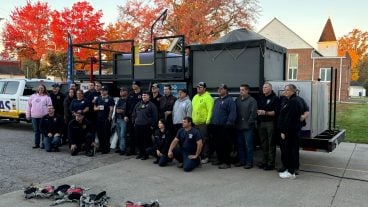
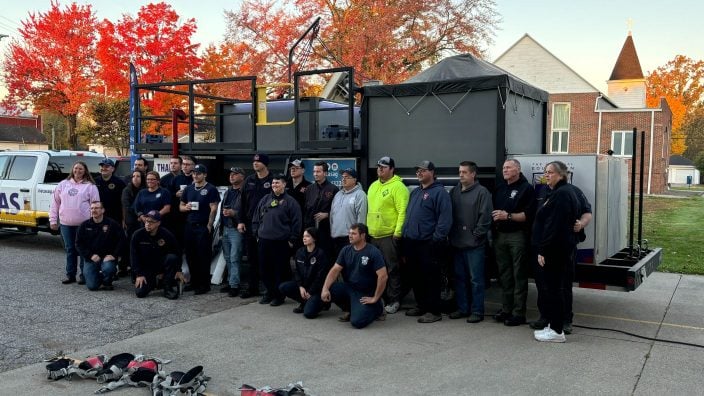
Nationwide’s Grain Bin Safety campaign has awarded grain rescue tubes and training to 390 fire departments across 32 states since 2014.
Read More

The event takes place Feb. 7-8, 2025 at Kalahari in Sandusky, Ohio and is open to members of all ages. Registration closes Jan. 21.
Read More

Receive free conference registration and complimentary transportation to and from the conference March 7-10, 2025 in Denver.
Read More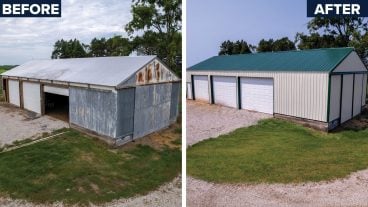
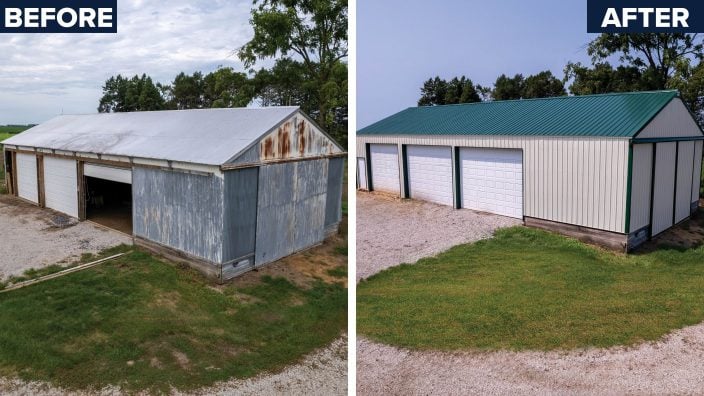
From minor fixes to complete overhauls, this limited time offer is your chance to save on necessary updates and give your post-frame building the attention it deserves.
Read More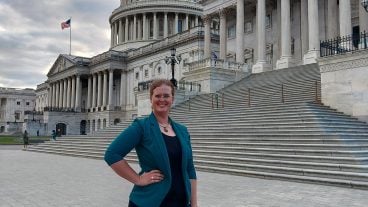
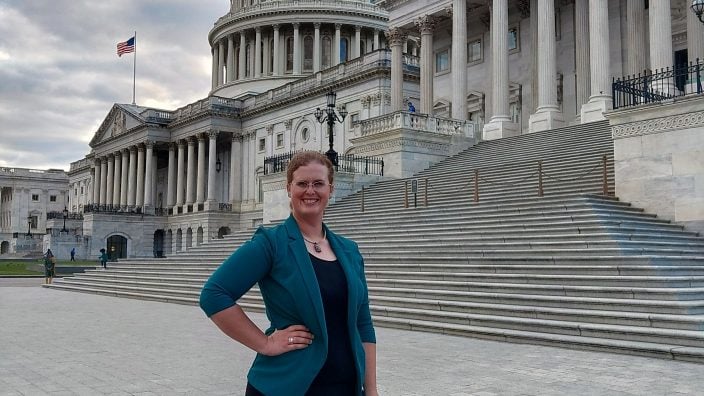
Sharing our story is how we connect with others, especially those not involved in the day-to-day operations of agriculture.
Read More

Bethany Schappacher, a Clinton County Farm Bureau member, and her family own Schappacher Farms, a 50-acre pumpkin farm featuring a corn maze, hayrides, fall treats and other family activities.
Read More